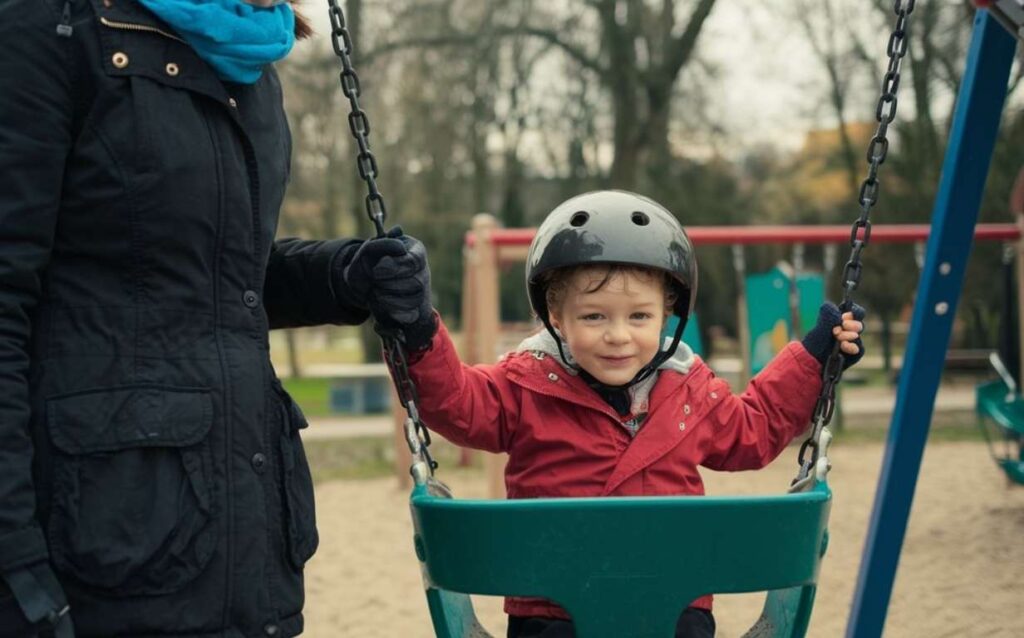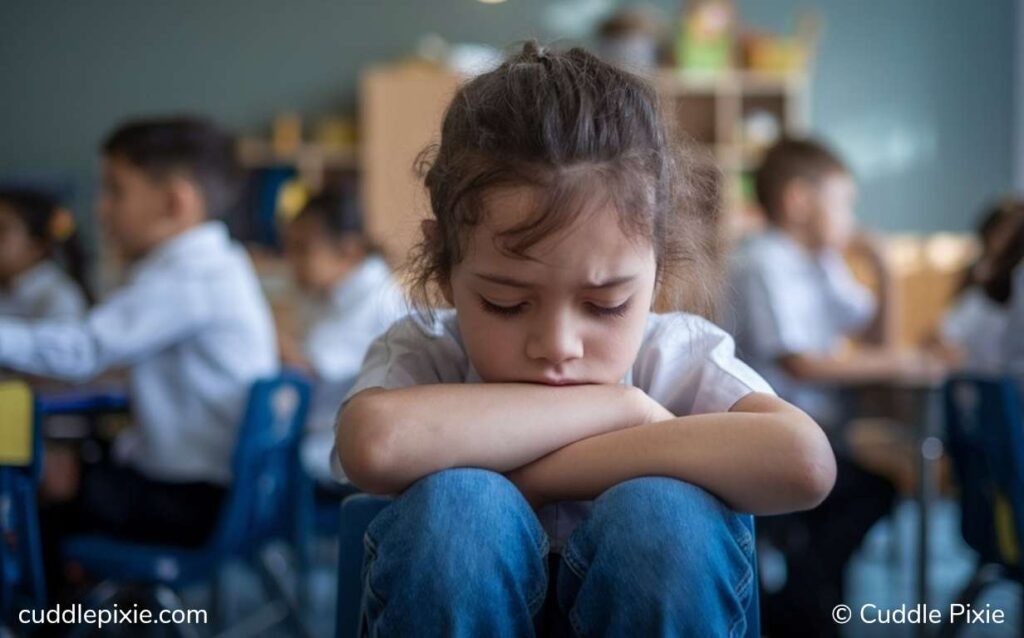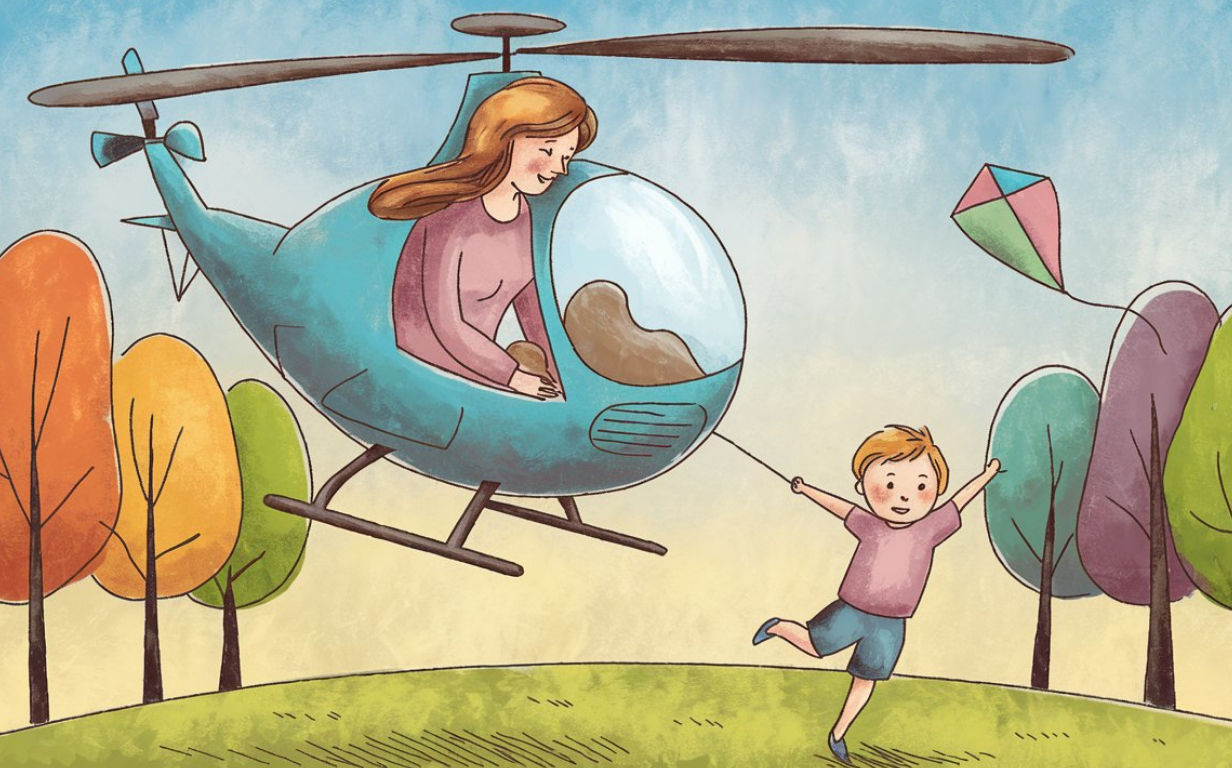Parenting is a complex, emotional journey, and I’ve seen firsthand how parents often walk a fine line between nurturing and over-controlling. As a father and certified parenting coach, I’ve worked with families navigating the ups and downs of helicopter parenting. While the intention behind this parenting style is rooted in love and care, it can inadvertently turn toxic if not managed well. This article delves into the intricacies of helicopter parenting, drawing from my own professional experiences, case studies, and the latest psychological research.
In This Article
What is Helicopter Parenting?
In my practice, I’ve often described helicopter parenting as hyper-involvement in a child’s life—managing every school project, friendship conflict, and career choice. These parents hover closely, ready to solve any problem before the child can even attempt to handle it. One of my clients once told me, “I can’t bear to see my child struggle.” While understandable, this mindset can deprive children of important learning moments.
A parent’s desire to ensure a smooth path often leads them to intervene more than necessary. I’ve seen many kids from such families struggle with independence later in life, hesitant to make decisions or take risks on their own. The goal of parenting, as I’ve learned through experience, should be to prepare children for life’s challenges, not remove every obstacle from their path.
The Psychology Behind Helicopter Parenting

In my years of working with parents, I’ve noticed a recurring pattern—fear and anxiety are at the core of helicopter parenting. Many parents believe that by micromanaging their child’s life, they can shield them from failure or disappointment. Often, they measure their own success by their child’s achievements, which creates an unhealthy dynamic.
Psychologically, this style of parenting is linked to control and perfectionism. Studies indicate that when children are not allowed to develop autonomy, they may experience low self-esteem, heightened anxiety, and poor problem-solving skills. I’ve seen teenagers who grew up under intense parental control feel paralyzed when faced with challenges, not knowing how to proceed without parental guidance.
One case that stands out involved a high school senior whose mother handled everything—from scheduling her assignments to deciding which clubs she should join. The student told me, “I feel lost when my mom isn’t around to tell me what to do.” The pressure of always trying to meet parental expectations eventually led to burnout.
Helicopter Parenting: My Observations on Pros and Cons
In my coaching sessions, I’ve seen both positive and negative outcomes of helicopter parenting. Parents are often surprised to learn that their involvement has pros—though limited—but the cons outweigh them if the behavior persists.

Pros
- Short-Term Academic Success: Children of helicopter parents often excel academically in structured environments. Parents’ oversight ensures that assignments are completed on time, and their children stay organized.
- Safety Net: Children raised under helicopter parenting feel emotionally supported, knowing their parents are always present and involved in their lives.
- Career Guidance: I’ve seen young adults benefit from their parents’ professional advice, especially during crucial life transitions, like selecting colleges or internships.
Cons
- Increased Anxiety and Poor Coping Mechanisms: In many families I’ve worked with, the child grows up anxious and unsure how to handle setbacks. Without experiencing failure, they never learn how to recover from it.
- Dependence on Parents: Children raised by helicopter parents often struggle to make decisions independently. I’ve had clients in their twenties who still consult their parents on everyday matters, like grocery shopping or scheduling doctor’s appointments.
- Strained Parent-Child Relationships: Over time, constant parental involvement can breed resentment. Some teens and young adults I’ve worked with have described feeling “smothered” by their parents.
Are Helicopter Parents Toxic? My Take
While helicopter parenting is not inherently toxic, it can become so if it prevents children from developing essential life skills. I’ve encountered numerous families where the parents’ love and involvement crossed the line into control, leaving the child emotionally stunted. Toxicity arises when parents fail to recognize their child’s growing need for independence.
In my coaching practice, I’ve seen the negative effects of excessive control—children feeling incapable of making decisions, struggling to handle rejection, and growing up with anxiety about their ability to function without constant guidance. But these outcomes aren’t inevitable. Parents can course-correct by adopting a more balanced approach.
Read More About Elephant Parenting
Which Generation are Helicopter Parents?
In my experience, Millennials and Gen X parents are the most likely to engage in helicopter parenting. These generations grew up during times of increased competition in academics and careers, coupled with heightened awareness of safety concerns. Social media amplifies this anxiety, as parents constantly compare themselves to others, believing they need to do more to ensure their child’s success.
However, I’ve also seen a growing awareness among these parents. Many now recognize the downsides of over-involvement and are actively seeking ways to provide more freedom to their children while staying involved in meaningful ways.

How Damaging is Helicopter Parenting in the Long Run?
Based on my observations, the damage caused by helicopter parenting can manifest in both emotional and practical ways. Children raised with excessive control often struggle with anxiety, indecisiveness, and poor problem-solving abilities. In my practice, I’ve had clients tell me they feel overwhelmed by everyday decisions, such as choosing between two job offers or handling interpersonal conflicts.
Helicopter parenting can also impact social development. When parents intervene in friendships or school dynamics, children don’t learn how to navigate social challenges on their own. I once worked with a college student who admitted, “I’ve never had to solve a fight with a friend by myself—my mom always did it for me.”
How to Fix Helicopter Parenting: Strategies I Recommend
Over the years, I’ve helped many families transition from helicopter parenting to a more balanced approach. Here are a few strategies that have proven effective:
- Encourage Problem-Solving: Let your child make mistakes and learn from them. For example, allow them to forget their homework once—it will teach them responsibility.
- Practice Gradual Independence: Start with small tasks. I’ve seen great results when parents allow children to manage their own schedules or pack their school bags.
- Reflect Before Intervening: I encourage parents to pause and ask themselves, “Does my child truly need help, or am I intervening out of habit?”
- Build Resilience Together: Share your own mistakes with your child to show that failure is part of life and a stepping stone to growth.
- Seek Professional Guidance: If you find it challenging to let go, consider working with a parenting coach or counselor. Change takes time, and having support makes the process easier.
Final Thoughts
In my journey as a parent and coach, I’ve learned that the most effective parenting involves balancing love with freedom. Helicopter parenting isn’t inherently toxic, but if it prevents children from growing into independent, resilient adults, it can become harmful. Parenting is not about controlling every outcome—it’s about preparing children to face challenges on their own.
As parents, we must trust that we’ve given our children the tools they need to thrive. It’s okay to step back and let them stumble, knowing that every fall is a chance for them to learn how to stand on their own. Progress, not perfection, is what I always remind the families I work with.
At the end of the day, parenting is about finding the right balance between involvement and independence. It’s not about being perfect but about being present in a way that empowers your child to grow into their best self. And that, in my view, is the ultimate goal of parenting.
